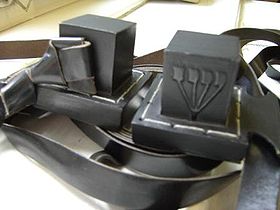 Parashat Reeh
Parashat Reeh
“This shall be the reward when you hearken to these ordinances…”
Why does the first verse of this week’s Sedra begin in the singular, but continue in the plural?
We should know that a person should always view himself as having done an equal number of good and bad deeds in his life. If at any time he does a good deed, he tips the balance for himself (and indeed the whole world) to the side of merit. A bad deed will do just the opposite. This is why the verse starts in the singular, as it is being addressed to every individual, whereas it continues in the plural to show the relevance of the blessing (or, Heaven forbid, the curse) for all Israel. We should also learn from this not to be merely concerned with ourselves, but with the welfare of the entire Jewish people.
We are told of the commandment not to eat blood, as “it is the life, and you shall not eat the life with the meat”. Is it so necessary to give us a reason for this? If a person offered you a fresh cup of blood and you, naturally, refused, would you feel that you had to fumble for an excuse? (Hopefully) not. But in those days, the Yetser Harah (Evil Inclination) tempted man strongly to eat blood, especially as the practice prevalent at the time was to drink blood in order to attract demons and learn the future from them. Eugh, but true.
But how does this apply now? Surely today we cannot picture someone drinking a pint of pigs blood to find out next week’s winning lottery numbers! [don’t try this at home].
In fact this is very applicable today. Nowadays we have many ‘battles’ to avoid consuming blood. After shechita (ritual slaughtering) a rigid procedure of soaking, salting and rinsing the meat is carried out so that not one drop of blood remains. One of the seven Noahide laws is not to eat a limb taken from a living animal – which still has blood on it. An egg that is found to have one blood spot is totally discarded.
Yet even with these commandments, the gentiles brought ‘blood accusations’ against us. Our history is replete with countless cases of Jews massacred because of the libel that Jews used christian blood in the baking of matzot. Perhaps this is why Hashem gave us the commandment to refrain from consuming blood. As a result of keeping this commandment, the nations who spill our blood will surely perish.
We are also told not to practice idol worship. This was a mistake that the gentiles had made which we should not follow, and we are warned about it in no uncertain terms. Check this out: if a person walks over a pit covered by a mat and dies as a result, we can mourn his death. How was this poor man to know that the pit was there? But if a second man watched this, and subsequently went to the pit and fell in, we would say that he threw his life away in an act of deliberate suicide. And so it is with idolatry. The Amorites were destroyed because of idol worship. You could perhaps be excused for lamenting their fate. But if the Jewish people (who witnessed this) fell into the same trap, who would mourn for us? We would be guilty of not learning from our mistakes.
Various commandments are mentioned in this week’s Sedra. The Torah runs through the list of animals and birds which are not kosher. One of them, the Ra’ah, is so called because it can see (ro’eh) a carcass in Israel when he is in Babylonia. But why did Hashem give such incredible sight to an impure bird? The Arizal, one of the greatest Kabbalists, tells us that the punishment for one who looks at women forbidden to him is to be reincarnated as this bird. It spies its food from a far distant land, but by the time it gets to it, another bird has eaten it. Therefore, it has to make do with just ‘looking’ – a fitting punishment for the reincarnated ‘birdwatcher’.
We are told to give a tithe (ten per cent) of our money away to charity. In this way, our Sages tell us, we will become richer. Ironic, isn’t it? But listen to this: the Sages also tell us that Hashem deposits the portion of the poor man with the rich man. When the rich man gives charity to the poor man, he is merely ‘returning’ what was left with him for safekeeping. Now, if a man is honest with his business dealings, being prompt with payments, people will trust him with their money. So it is with our analogy: If the rich man promptly gives back the ‘deposit’ to the poor man, Hashem will entrust the rich man with more money, and thus he will be able to perform even more mitzvot. This is a perfect example of showing that “the reward for a mitzva is a mitzva”.
Can it not be said, therefore, that if a man is poor, he doesn’t need to give, but merely to receive? Here’s a story… A poor man wanted to send a parcel by post. He puts a stamp on it and takes it to the post office. The clerk weighs the parcel and tells the man that he needs to put on three more stamps, as it is too heavy. The man replies “but surely if it is too heavy, these stamps will make it even heavier?” The clerk replies “Fool – don’t you realise that it is the ‘weight’ of the stamps that carry the parcel? Without these stamps, your parcel isn’t going anywhere!”
It is the same case with charity. When people are finding it hard to make needs meet, the first thing that they give up is giving charity. They say “I don’t have much, so why should I lose more?” But we are just too blind to see – the little charity that we give ‘carries us’ through life. Without it, we ‘ain’t going anywhere’! Indeed, the verse later on says “You shall not hearden your heart or close your hand”. Your heart should feel the pain of the poor person, but it should not turn away. Once the heart ‘agrees’, the hand should be generous and give.
The Torah uses lengthy language to describe someone who is lax in giving charity – “and you will look malevolently upon your destitute brother and refuse to give him”. This is the way of the miser. When he sees the poor man, he accuses him of ‘fraud’, saying “You have no money of your own. Why must you live off other people?”. He will also describe him as a lazy good-for-nothing. But the miser is really aware of the poor man’s situation. He just wants to justify his own greed.
On that note, why not end the week with a new resolution, and put that lottery money in the charity box. That way you DEFINITELY win!
Shabbat Shalom





